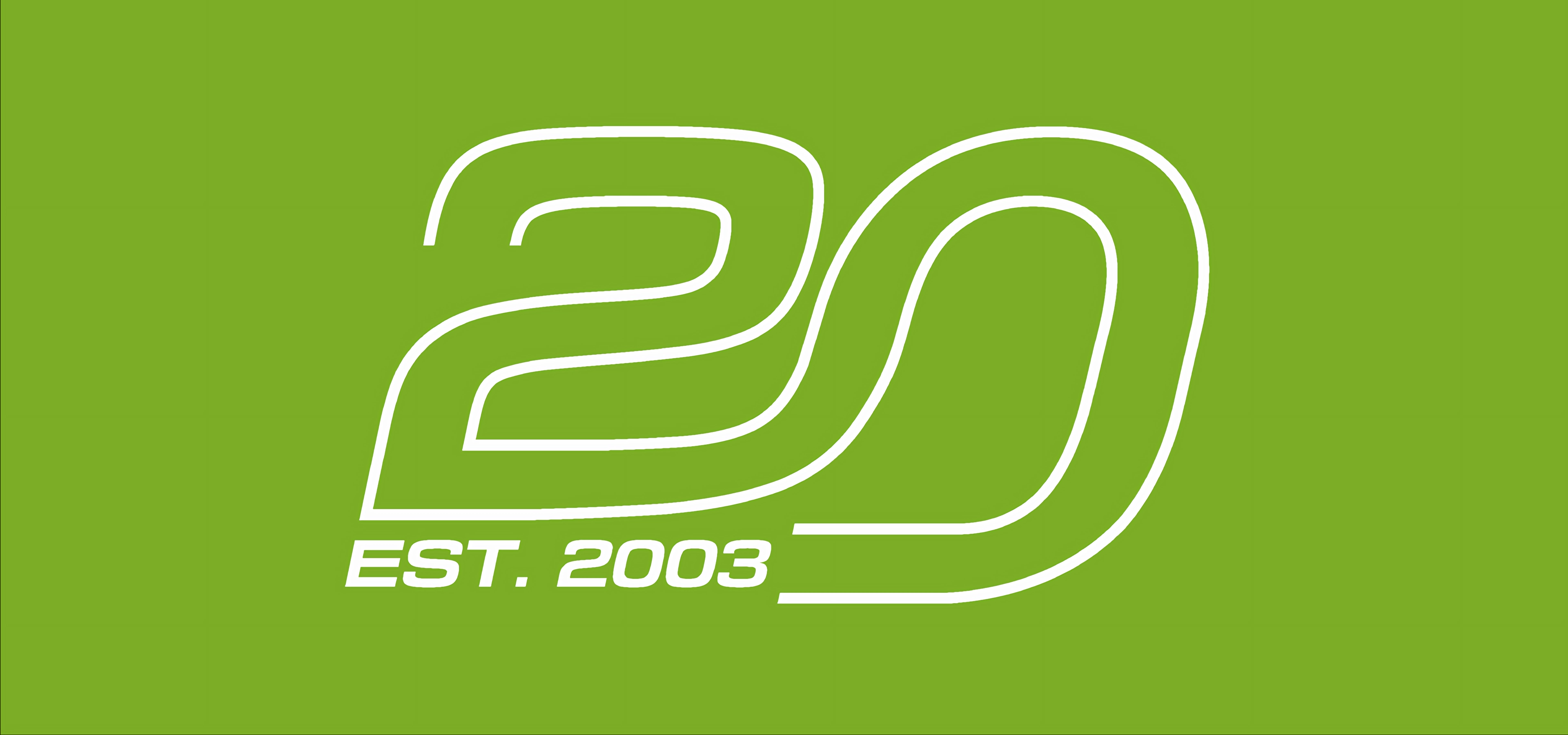
IN THE DRIVING SEAT
Interview with Phil Westwood, Creative Director, Greensquare Brand Design Limited
As Greensquare celebrated 20 years in business, Creative Director and Founder Phil Westwood sat down in conversation with Richard Heathcote to reflect on the last two decades catalogue of work and what lies in store for the next 20 years and beyond. This is an extract from their discussion; to listen to the full interview launch the player below.
RH: Greensquare are celebrating 20 years in business this year. What are some of the biggest challenges you’ve come across for automotive brands, and have the types of challenges been pretty consistent over the last 20 years, or do new challenges present themselves all the time?
PW: I would say that historically, automotive brands have always faced the same challenges. Put someone in the vehicle and keep them there. They want to come back for another one.
At Greensquare we’ve built what we call The Square Route, which is a customer journey that we’ve mapped out for vehicles. There are three attributes to it: The first is what we call building desire, followed by building relationships and then building loyalty. For example, if we look at building desire, what we’re looking to achieve here is changing a want into a need.
RH: Vehicle brands advertising campaigns can arguably often appear very similar in style. So, cars sweeping across luxurious city and countryside scapes, sometimes with ambiguous titles and voiceover, which can make them sound a bit like perfume or aftershave adverts. So, do many of them stand out to you, and if not, how can they stand out and be different? And likewise, how do you make things stand out and be different for your clients?
PW: Well, the first answer I have to give you is no, they don’t stand out. I think that you really are now looking at things where we are process-driven in a lot of ways, people aren’t actually thinking too much about the person.
I think that this is a big problem for me, actually, when I look at our industry. All we’re interested in is getting something out there as quickly as we can, then just sitting behind a set of metrics, we’ve missed the whole point. When you look at advertising in the UK now, I’m pretty horrified to know that 89% of it is not remembered at all. We’ve lost the art of selling. Nobody is interested in that.
RH: It’s all become very abstract in a way, hasn’t it? Every advert could be anything, could be artificially generated.
PW: Absolutely. You’ve mentioned they could be an advert for a perfume, and this is the problem we have. What would I do differently? I’d actually ask the question, “Why should I buy this car? What is it about this car that’s better than those?” And answering your question in terms of what we do with the larger vehicles, we’ve gone to automotive in terms of how you would perhaps market a premium brand and brought those values in to a commercial vehicle.
I take the view that if you’re asking somebody to spend probably in some respects double what you’d ask them to spend on the Bentley, you treat them in the same vein. You don’t insult them by just giving them some half-arsed marketing. Do it properly.
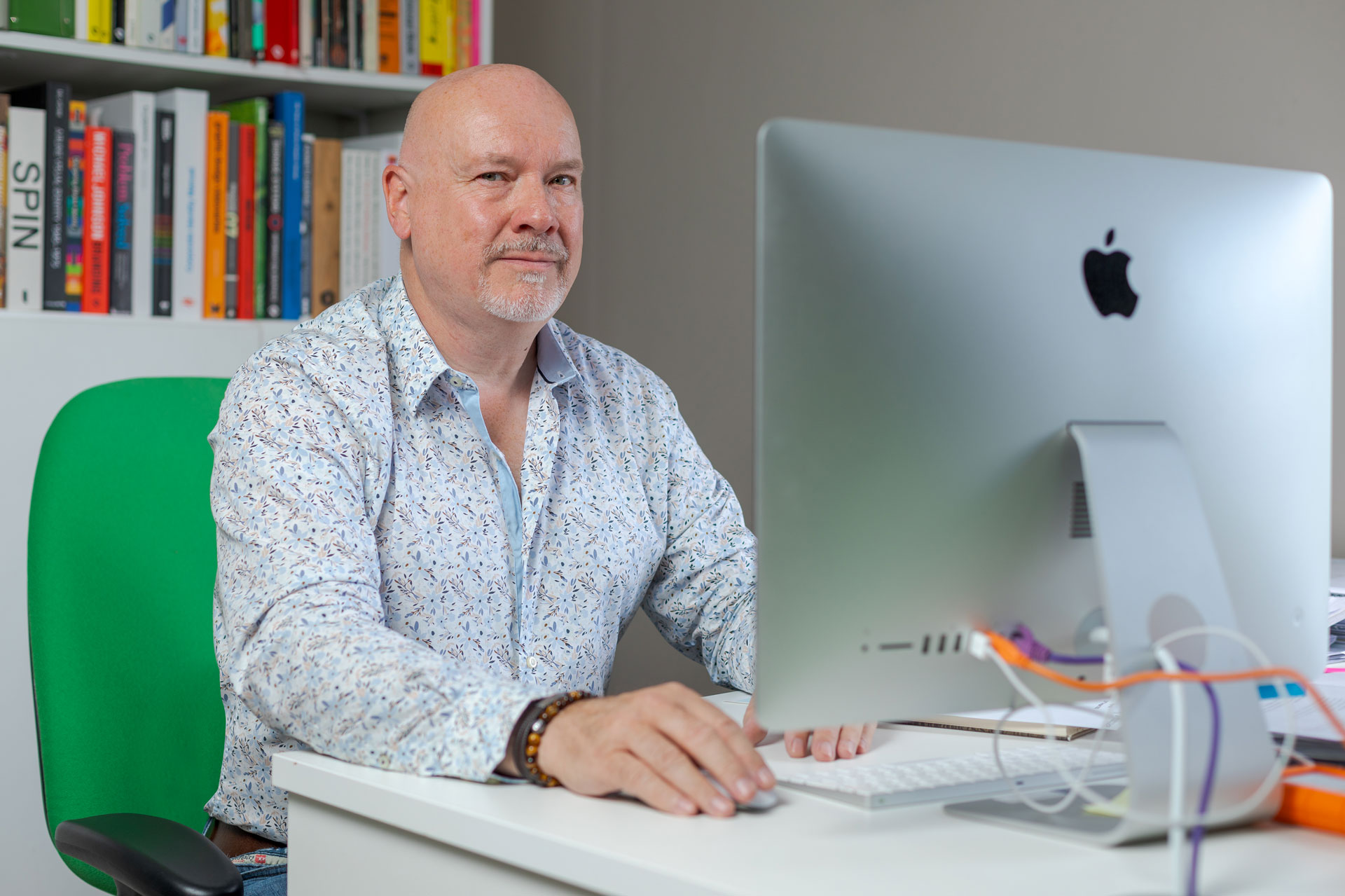
RH: And there’s been quite a sea change over the last few years in the general public’s attitude towards cars, the move from petrol and diesel to electric. Mindsets are changing of how and when we use vehicles, and petrol prices, of course, which have been horrendous lately. How do you think that informs the advertising for car manufacturers, and has there been any noticeable change in our campaigns are created?
PW: We don’t know what that future fuel or the future technology is going to be, because that is changing on a daily basis. But yes, in terms of, say, an electric vehicle, people are interested obviously in terms of how long that will run before they have to charge it again.
In terms of a commercial vehicle, you are then obviously looking at what else it’s going to do, because unlike a car, there are potentially other things are happening with this vehicle. So, it might be pulling something, it might actually have mechanisms running from it, and all of a sudden that’s draining energy away. So, there are challenges in terms of that and how you communicate them. It’s not a market that’s been so static for years that change isn’t ever happening or is welcome. Things move all the time within automotive, they’re going to move, I think, quite seismically, actually, over the next 10 years.
RH: So how have you developed Greensquare’s USP over the last 20 years? Are your original value still as relevant today, and where do you see the next 20 years? Any distinct changes envisioned?
PW: I think if we look at the values, they’re pretty much where they were when we started. I’m very happy with where we are now as an agency. I think we’re in the best position we’ve ever been in. I hope we carry on the path we’re on now, because I believe it’s the right one.
RH: Knowing you’re in the best possible place where you are right now, that’s the main thing for now anyway.
PW: I think that you have to be comfortable with where you’re at, you have to be confident and I’m very confident in the offering that we have to the market. I recently attended an industry-led debate online, and somebody made reference to the fact that the average client-agency relationship spans three years.
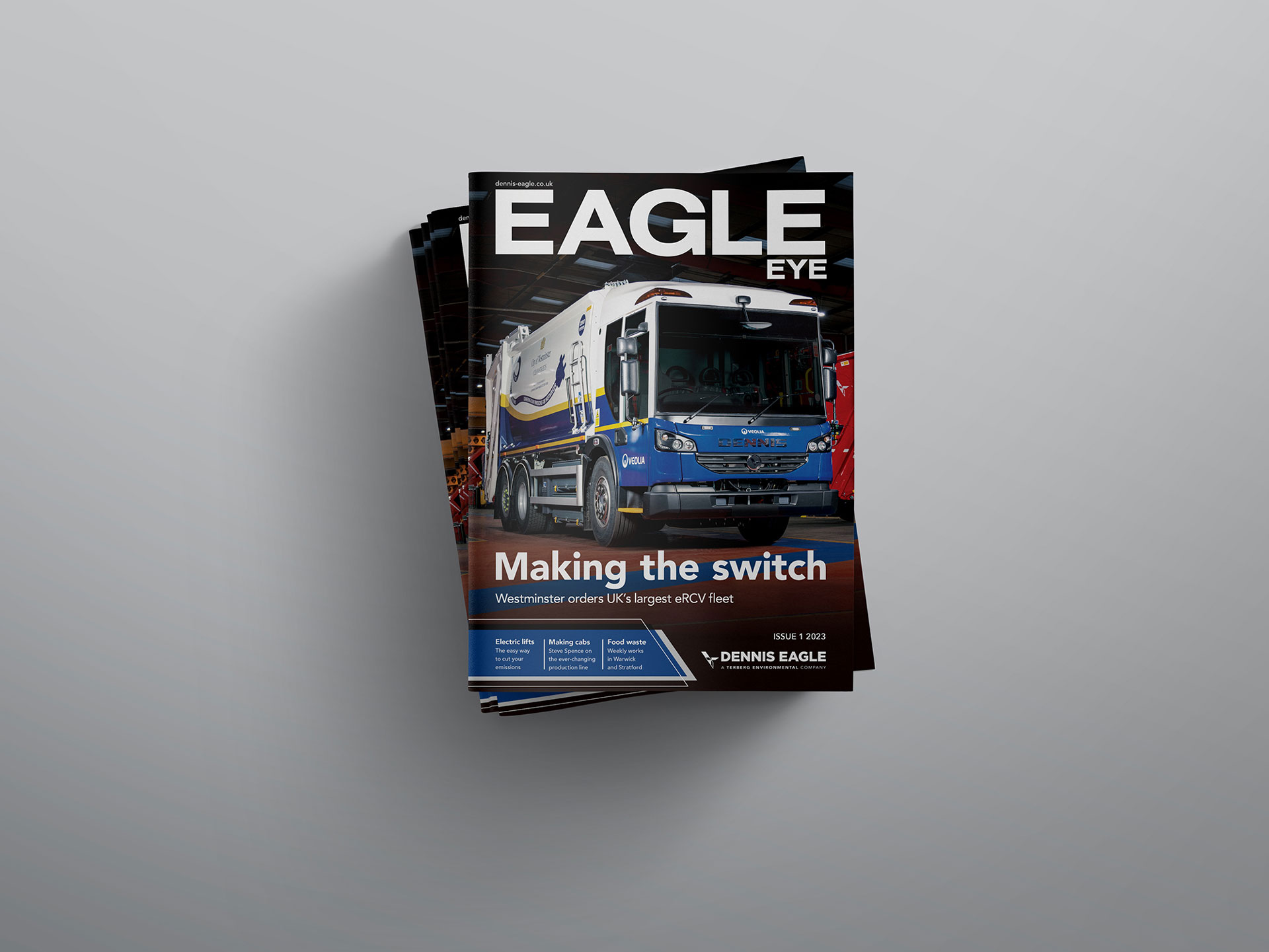
I looked at what we were doing and bearing in mind that we’d just taken on two new clients probably about two or three months before, we were at just under nine. So, we are three times the average, I took a lot from that.
RH: Well, which leads me to what prompted your specialism in the automotive industry in the first place, and do you see the next 20 years continuing to specialize in that same area? Or is there any natural branching out to associated industries?
PW: Going back to 2017, I’d been running the agency for 14 years. I knew there was something that I wanted to do, but I didn’t know what. I had to take myself out of the business and ask a series of questions to be able to move forwards. The more that I looked at this, the more that I realised that what I didn’t want anymore was to be like the majority of agencies in this country, which are what you would call generalists.
I arrived at a decision where we either specialised in a discipline, so just one thing, are we just going to be a digital agency? Are we just going to make films? Or do we specialise in a sector, but retain all of the skillsets that we’ve built up over those previous years? It was an easy decision to make. You never know where you’re going to go in life and in business, because things can change, and opportunities arise and present themselves. But I think certainly sitting here today, I’d be very surprised if in 5, 10 years, who knows, that we’re not working with vehicles, because I think that we’ve built something quite special.
RH: Has changing technology, the rise in alternative fuels and technology and artificial intelligence, impacted the sorts of brands that you work with?
PW: It hasn’t impacted on us in terms of who we would work with. I think it would be interesting if somebody came to me and said, “We’ve developed this technology. Are you interested?” I’d like to have that conversation. Let’s not forget that when you are working within several sectors across a number of vehicles, you have to understand them.
RH: I suppose whether it’s a Model T Ford or a Tesla Model X, it’s still a box that transports people or things from A to B.
PW: Yes. Also, believe it or not, it could be a refuse wagon, it could be an agricultural sprayer, it could be a tractor, they could be pulling a trailer, it could be a crane, it could be anything. You’d be amazed how enthusiastic people get over a piece of kit. And I love that, I love to see it.
That’s why we do what we do in terms of the values that we bring in from what you might historically expect to see from premium car brands, because you are working with people that love machines, so treat it with love.
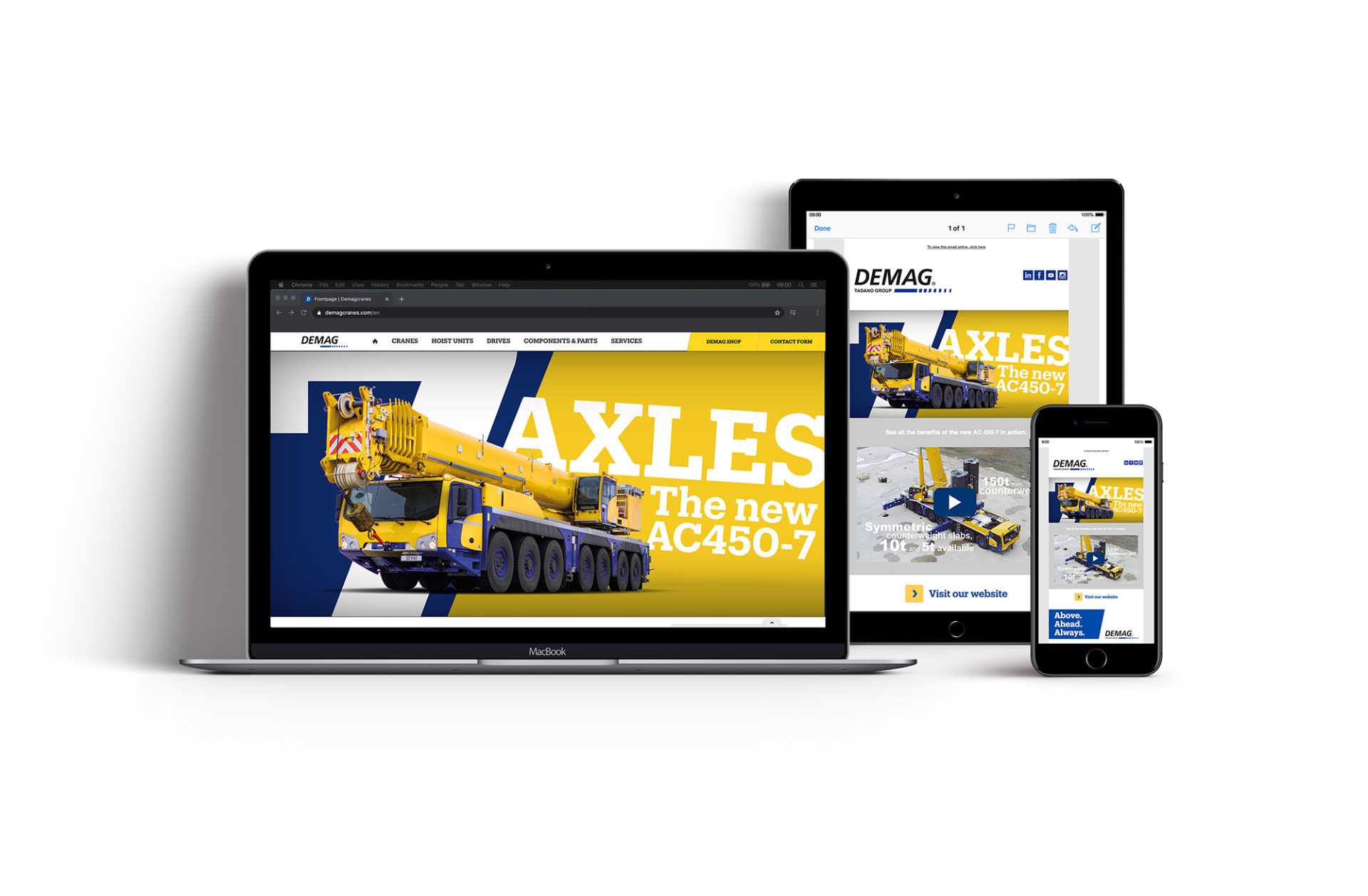
RH: And have marketing techniques changed over the years with all the modern communications channels that are now available, with many brands turning to things like TikTok, as opposed to traditional TV and magazine advertising?
PW: It depends what you’re selling and where the audience is, because if the audience isn’t on TikTok, don’t bother going onto TikTok. We have to move with whatever technology is available.
When you look at things now, we’re in such a better place. Historically, you’d place an advert in a magazine, say a prayer and hope that you got some leads from it. If you didn’t ask the person or if you hadn’t got a reference number and even if you’ve got a reference number, they may not remember it. So, you didn’t really know if your ad had worked.
You now know, because you can see where people are going, what they’re doing, what they like, and that’s fantastic. But I keep coming back to the same point. Unless you understand who you’re going out to, what they want and what you want, you’re wasting your time.
And by the way, if you really want to stand out these days, print something.
RH: You have introduced an Accelerator Programme. Why have you done this?
PW: There are lots of companies out there within engineering, wheel-based engineering in particular, that either don’t have anybody in marketing, or it’s somebody’s job, but it’s not their main job. We devised the Accelerator Programme to talk to businesses in this position.
It starts with a question, “Where do you want to go?” In some respects, we end up writing a business plan that doesn’t exist, and you start from there. Once we understand what the goals are, we write a marketing plan for that business for either 12 months, sometimes a little bit longer, but generally 12 months, because I think that’s a good chunk of time to work to. You don’t want to go too far, because as we’ve already established, things can change quite quickly.
And then you have a series of monthly activities that answer those questions asked within the strategy. We have regular review meetings with the client, they receive monthly reports that are generated, showing them what we’ve done, they get the analytics from campaigns that we’ve been running.
It’s a real team effort. We don’t just know the people in the boardroom and in the sales team. We know the people on the shop floor, the people who are out on the road, the service engineers, because I think that that’s the only way to do it.
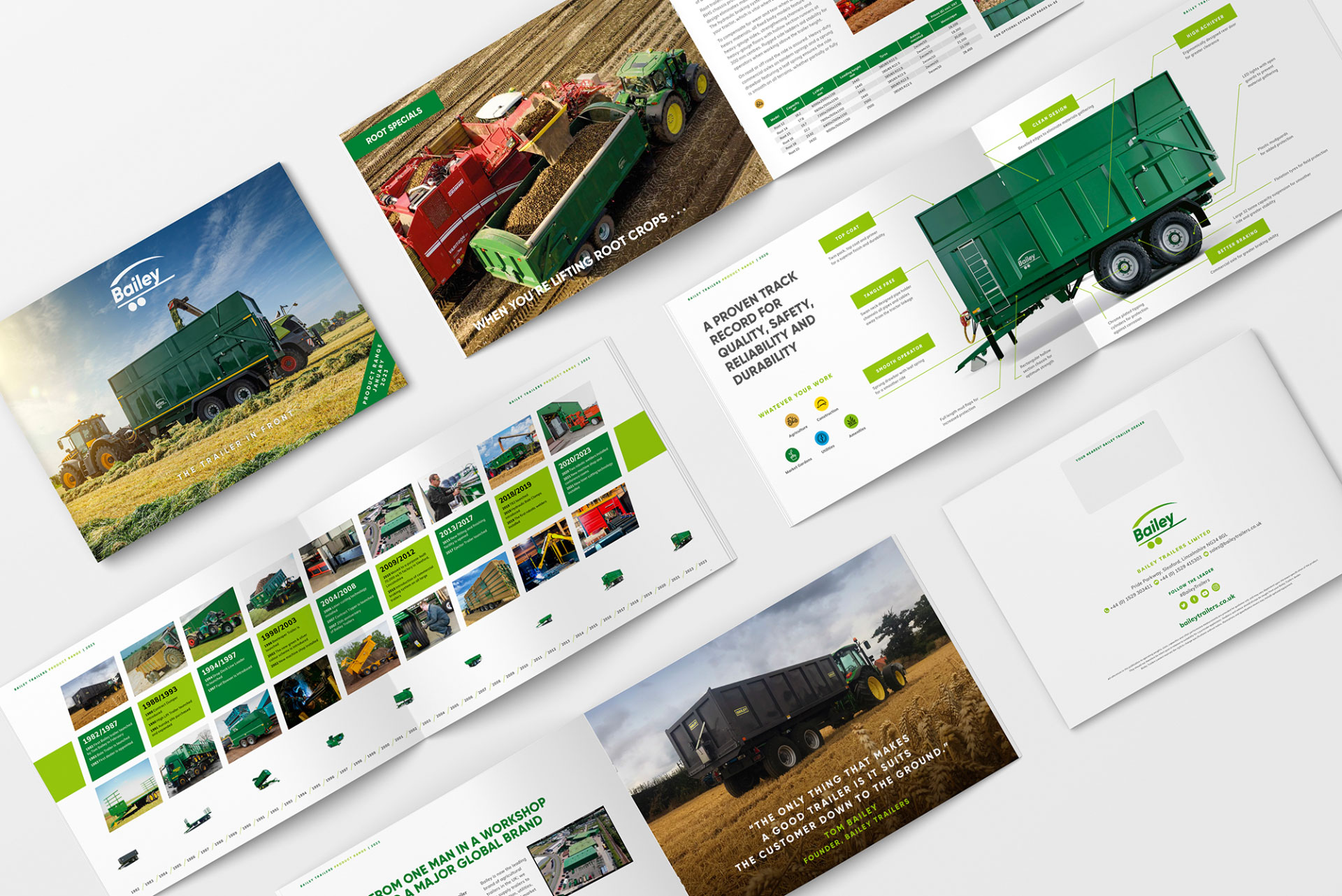
I think this is something that sets Greensquare apart, we have embraced the fact that we’re in a results-driven business. Hence, whatever we are doing is always relevant to that client and their marketplace.
RH: And do you get a free reign a lot of the time with these sorts of clients with the Accelerator Programme, or do you usually have to stay between very strict parameters, or do you just basically walk in and say, “Well, this is what you need to do, and you either do it or you don’t?”
PW: A fairly free reign, because it’s our area of expertise and that’s why we are there. It starts with an audit, we look at what they’re doing, what they’ve done and from there it’s generally easy to see what needs to happen.
We are there to take people out of their comfort zones. I think the point here is that you can’t stay in that little bubble, because if it hasn’t worked, you’ve got to go elsewhere. We have to be respectful at all times, we are there to do a job, you have to be able to put your point across, but we have to be respectful, because at times we’re asking people to do something that is so alien to them. They might not totally get it, but they have enough trust in you. I think for me, that’s probably one of the most satisfying parts of this job.
RH: In your eyes, how will Greensquare continue to innovate and stay ahead of the curve in marketing and branding over the next 20 years?
PW: As an agency we are always looking to do things better, I think that you have to keep pushing, keep moving forwards. So, when you say innovate, it’s all about ideas generation. There’s always something that you can improve on, because nobody gets to the point where everything’s absolutely perfect. You have to adapt to an ever-changing landscape; we’re certainly going to remain open to new techniques and also carry on using trusted techniques. Marketing and branding has always been about people. We are people-focused, and our focus will remain on people. ![]()
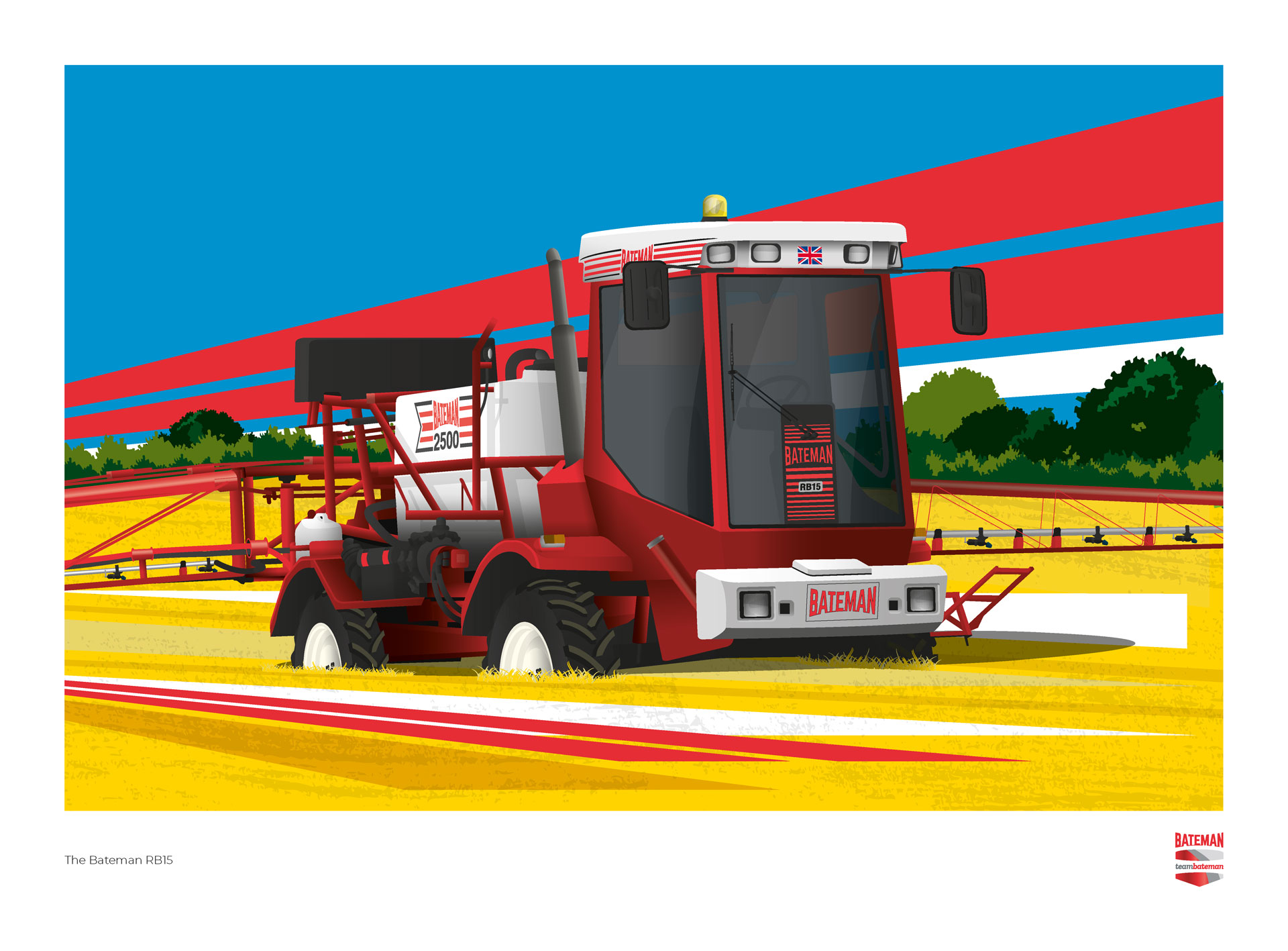
Greensquare is a registered company in England.
© Greensquare 2024.
“Greensquare” and “Green Square” are the registered trademarks of Greensquare Brand Design Limited. All rights reserved.
Privacy Policy Sitemap DBA Member
Greensquare Brand Design Ltd
1745 Warwick Road
Knowle, Solihull
West Midlands B93 0LX
Find us on Google Maps
Subscribe to Drive
General enquiries: hello@gsbd.co.uk
New business: phil@gsbd.co.uk

